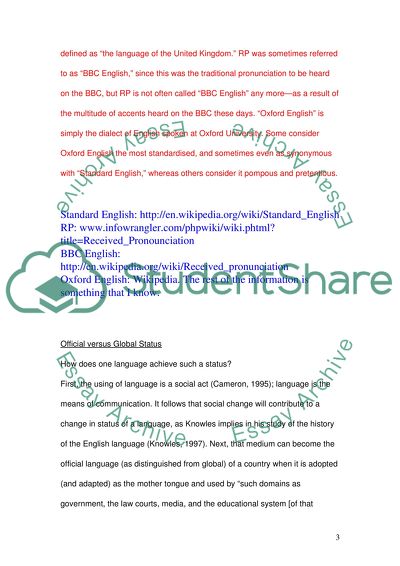Cite this document
(“Development of English as a Global Language Essay”, n.d.)
Development of English as a Global Language Essay. Retrieved from https://studentshare.org/english/1510287-development-of-english-as-a-global-language
Development of English as a Global Language Essay. Retrieved from https://studentshare.org/english/1510287-development-of-english-as-a-global-language
(Development of English As a Global Language Essay)
Development of English As a Global Language Essay. https://studentshare.org/english/1510287-development-of-english-as-a-global-language.
Development of English As a Global Language Essay. https://studentshare.org/english/1510287-development-of-english-as-a-global-language.
“Development of English As a Global Language Essay”, n.d. https://studentshare.org/english/1510287-development-of-english-as-a-global-language.


